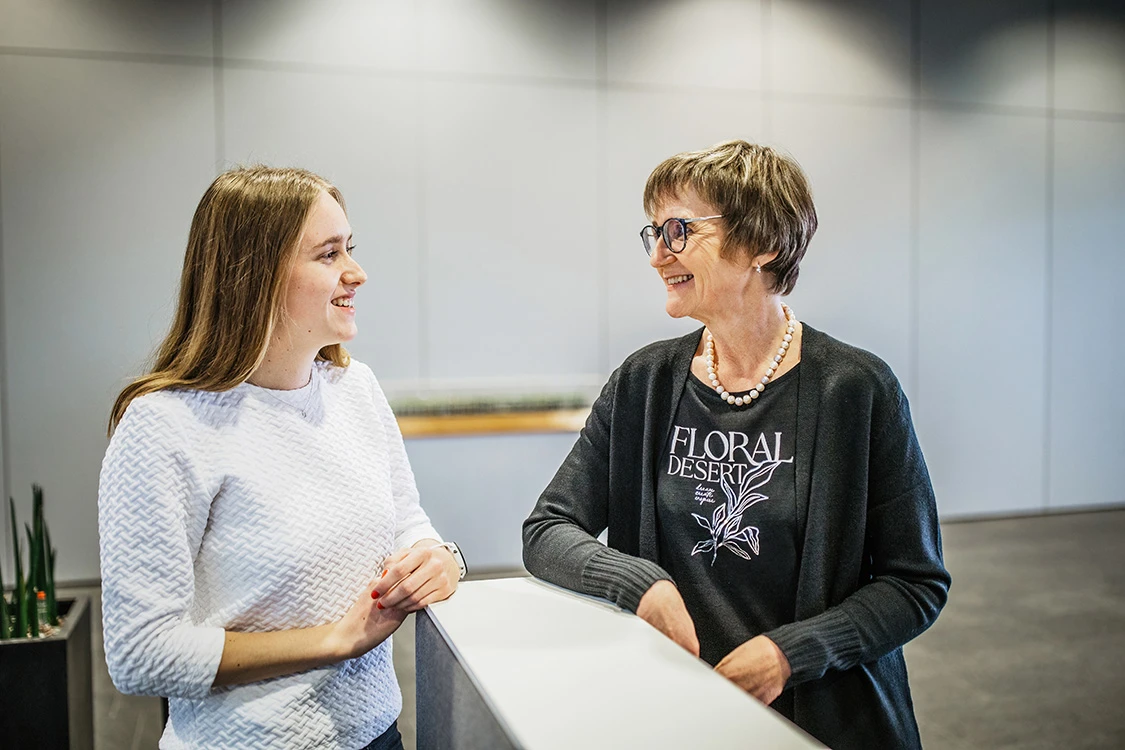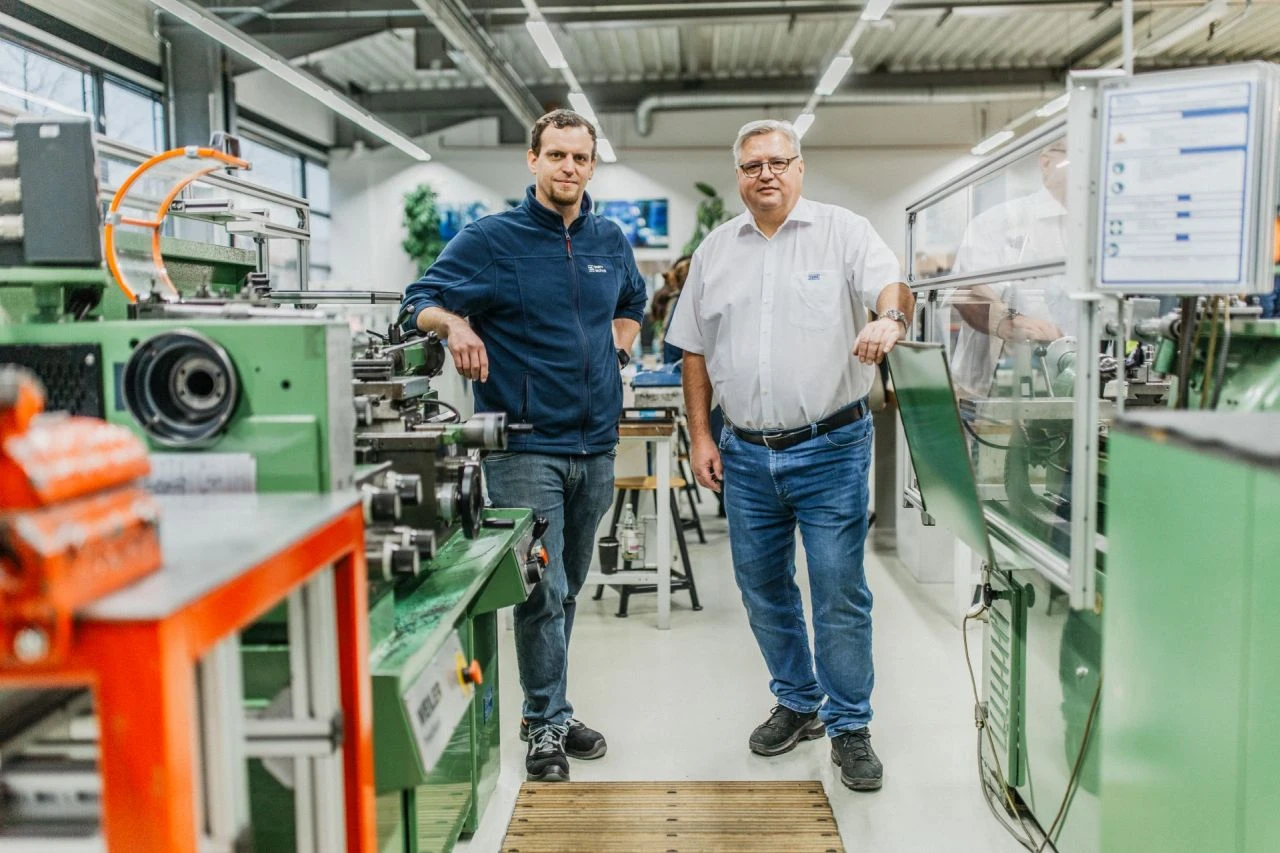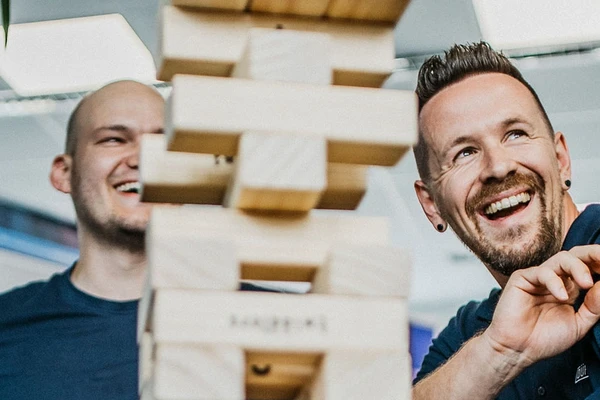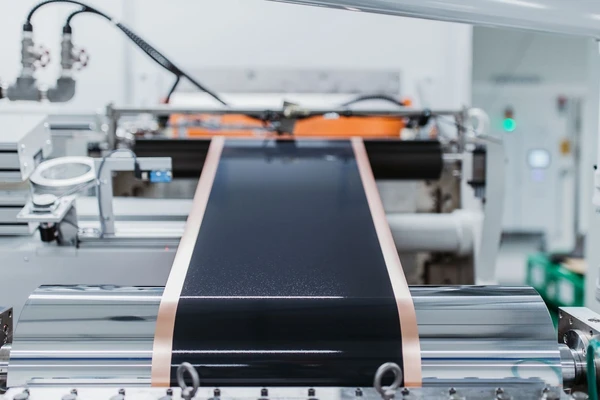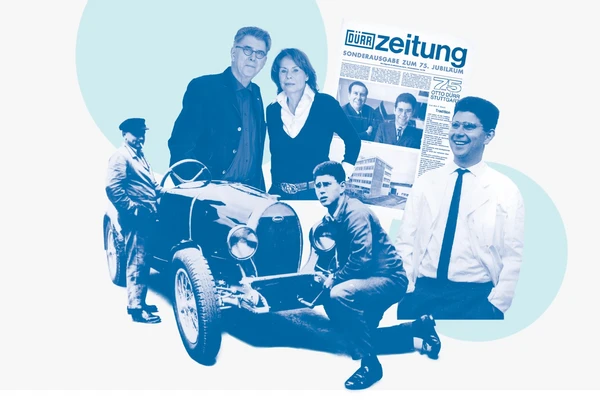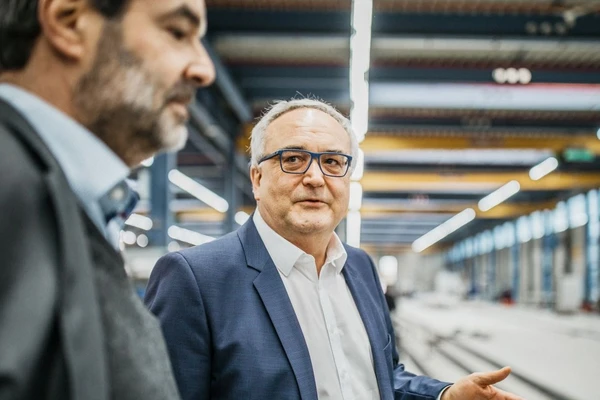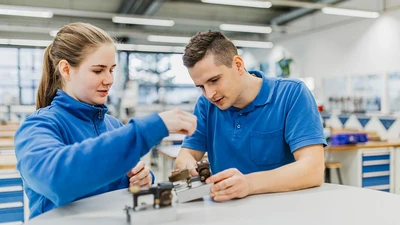
Shaping tomorrow, starting today
Apr 25, 2024
Well-trained, skilled workers are more sought-after than ever. The Dürr Group offers young people a wide range of vocational training opportunities with attractive prospects. Former and current apprentices share their experiences over four decades. Why did they opt for an apprenticeship? Why did they come to Dürr? What do they appreciate most about their company? Even though the professional world is in constant flux and a lot has changed over the years, they do still find some common ground.
Thinking back to her apprenticeship as an industrial clerk at Dürr, Sabine Hillebrand notices one change in particular: “When I started at the age of 17, I was very shy and reserved. Today’s apprentices are much more self-confident,” she says. “Back then, when I had to negotiate something in the purchasing department, I preferred to go to an office where nobody could overhear me. Young people today aren’t worried about that. They approach these tasks completely openly and without reservations.”
Hillebrand’s apprenticeship was around 40 years ago now. She has spent her entire professional life at Dürr. Only once did she put her feelers out to other companies. But her former boss brought her into his department and a potential move was off the table. This loyalty to Dürr is not an isolated case. She says, not without pride, that three of the four commercial apprentices who started with her back then are still with the company today.
Many paths lead to the Dürr Group
Hillebrand originally wanted to become a bank clerk. But that didn’t work out. Since her father was a department manager at Dürr, she also ended up applying there. That is what connects Hillebrand to Lea Ruof, whose father works for Dürr’s subsidiary Teamtechnik. “That's why the company was also on my radar” says the 22-year-old, who is training to become an industrial clerk.
Ruof embodies the young, self-confident generation of apprentices. What she appreciates about Dürr is that she can get involved in many different ways and take on responsibility in projects. During her time in the HR department, for example, she was involved in selecting candidates for the trainee program. In the second year of her training, she completed a four-week work placement in the United States. After her apprenticeship, she first wants to gain professional experience at Dürr before pursuing further training. “I'm not sure yet whether to go for an advanced training qualification or a part-time degree,” she says.
Lena Heßlinger came to Teamtechnik through a school internship. “I live nearby, so it was a no-brainer that I would check it out,” she declares. “I really enjoyed the internship. That's why wanting to do my apprenticeship here was an easy decision for me.” She is now in her second year of training as an industrial mechanic — a profession in which women are still the minority, although she says they are steadily increasing in number. She is particularly enthusiastic about milling. In fact, she assures us that there hasn’t been anything in her apprenticeship so far that she hasn't enjoyed.
Heßlinger also likes the fact that the apprentices at Teamtechnik have their own workshop where they can try out new things. When she compares this with her fellow vocational school students at other companies, this place is really something special. She can also work regularly in other Teamtechnik workshops. She was even on an assembly job in her first year of training. “That was quite cool.” Her plans for the future: “First settle in and gain some professional experience,” she says, then adds with a mischievous smile: “Maybe then I'll make it to 40 years at Teamtechnik, too.”
At the starting line
In 2023, the Dürr Group trained 467 young men and women at its German sites. 288 of them completed their vocational training at HOMAG Group AG. Dürr Systems AG had 96 vocational training participants, Teamtechnik 57, and Schenck 26.
In terms of occupational groups, the industrial/technical professions accounted for the largest share (285 apprentices), with mechatronics technicians being the largest subgroup (121).
This was followed by students in work-study programs for technical subjects (114), commercial apprentices (48), and students in work-study programs for commercial subjects (20).
The German training system is a successful model that is copied all over the world.
Hans-Uwe Klaiber, Training Manager at Dürr
It’s not just grades that count
The two training managers at Dürr and Teamtechnik, Hans-Uwe Klaiber and Marcel Rütten, emphasize that vocational training has a future. “It is especially in Germany, where we have few raw materials, that we need to score points with knowledge and skilled workers,” says Klaiber. He adds: “The German training system is a successful model that is copied all over the world.” Rütten points out that the highly complex equipment of Dürr and Teamtechnik requires a great deal of expertise and that it is therefore important to train skilled workers in-house, specifically for this purpose. In terms of technical training content, they have both observed a shift in focus. “The trend is moving toward more computer science and somewhat away from pure mechanical engineering,” says Klaiber.
When selecting applicants, both of them look not only at the grades obtained in the main subjects, but also at other qualities such as behavior and participation. Internships or other forms of engagement also have a positive impact. In addition, the cover letter plays a major role. “The applicants should use it to refer to our company and thus demonstrate that they have made an effort to learn about us,” says Rütten. Trial work, in-house tests, and job interviews with the designated apprentices also play an important part in the further process. “After all, we want to see that it works for both sides,” explains Klaiber.
Even if you don't like something at first, you gain experience and grow from it.
Malte Michelfelder, Team Leader Electrical Assembly at Teamtechnik
The right choice
Malte Michelfelder started his apprenticeship as a mechatronics technician at Teamtechnik in 2008. Afterward, he went through several departments, completed his master electrician certification alongside his job, and is now a team leader for electrical assembly. Like Sabine Hillebrand, he also thinks that today’s apprentices appear more confident. “When I see the topics they are already dealing with at the age of 16, I realize that they are much more mature and grown-up than we were back then.”
He adds that he always tells his apprentices how important motivation is — especially when it comes to things they may not enjoy as much. “Even if you don't like something at first, you gain experience and grow from it,” he says. He admits that vocational school was a bit of an issue for him during his apprenticeship. He has this in common with Hillebrand, Ruof, and Heßlinger, none of whom are, or were, big fans of the school phases during their training. However, they don’t question its fundamental necessity.
All in all, Michelfelder says he has been able to experience and learn a lot of new things during his departmental changes. “It never got boring or tedious.” If he had to choose again, he would opt for the same career path. “I've never been a theorist,” he explains. “Despite my duties as team leader, I still do a lot of practical work. I wouldn’t be happy with a purely office-based job. Studying at university was never an option for me either. There’s absolutely no question for me: I would do an apprenticeship again.”
More about
- Career in the Dürr Group: → Once an apprentice, now an instructor
- Whether a vocational training in mechatronics, computer science or in another profession: → Let's get started
- Would you also like to get started? Find out about training opportunities at the Dürr Group: → Gaining first experiences

Simone
Beutel
Corporate Human Resources
Dürr Aktiengesellschaft
Carl-Benz-Str. 34
74321 Bietigheim-Bissingen
Germany
Carl-Benz-Str. 34
74321 Bietigheim-Bissingen
Germany
